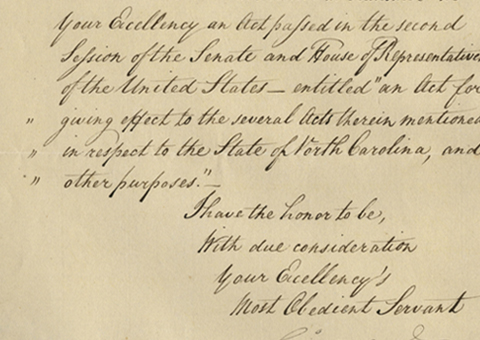President of Harvard Charles W. Eliot Rallies Massachusetts Educational and Medical Institutions Against State Taxation


He writes the President of Williams College to forestall legislative attempts to tax Harvard and others
Typed letter signed, Harvard, March 18, 1897, to President Franklin Carter of Williams College. “Dear President Carter – Our petition goes in today. Hon. John E. Sandford, the Railroad Commissioner, will take it to President Lawrence. They are both Amherst men. Mr. Samuel Hoar, who will represent the Massachusetts General Hospital in...
Typed letter signed, Harvard, March 18, 1897, to President Franklin Carter of Williams College. “Dear President Carter – Our petition goes in today. Hon. John E. Sandford, the Railroad Commissioner, will take it to President Lawrence. They are both Amherst men. Mr. Samuel Hoar, who will represent the Massachusetts General Hospital in this matter, is the best person to communicate with Mr. Houghton; and he will doubt less do so. There are supposed to be some A. P. A. members in the Legislature; and my advisers – among whom are included two Roman Catholic laymen – think that we might lose some votes by putting in the Archbishop’s signature and that we could not gain any. The fact that the Archbishop has a petition before the Legislature to be incorporated by himself, has some bearing on the matter. The best kind of Catholic signature would be that of a body of trustees for a Catholic hospital. Unfortunately, the property of their institutions is often held by the Archbishop as a private person, I have heard directly from President Seelye. He is in favor of our proceeding; but, owing to his absence, I have not been able to get the signature of Smith College on the petition. If our petition is admitted, a pretty serious piece of work lies before us. The most effectual argument against the present form of exemption is the argument that the exemption is conferred on the institutions by the state, but the cost of it is really borne by a few cities and towns. To meet this argument, it is important to show that the towns in which exempted institutions are situated are substantially benefited by such institutions. Can you gather any facts at Williamstown to show how much taxable property has been brought into the town in consequence of the College being there? We have a very strong case of that sort in Cambridge.”
Along with an Autograph Letter Signed to Carter making an introduction, dated September 29, 1891.

Frame, Display, Preserve
Each frame is custom constructed, using only proper museum archival materials. This includes:The finest frames, tailored to match the document you have chosen. These can period style, antiqued, gilded, wood, etc. Fabric mats, including silk and satin, as well as museum mat board with hand painted bevels. Attachment of the document to the matting to ensure its protection. This "hinging" is done according to archival standards. Protective "glass," or Tru Vue Optium Acrylic glazing, which is shatter resistant, 99% UV protective, and anti-reflective. You benefit from our decades of experience in designing and creating beautiful, compelling, and protective framed historical documents.
Learn more about our Framing Services









































































































